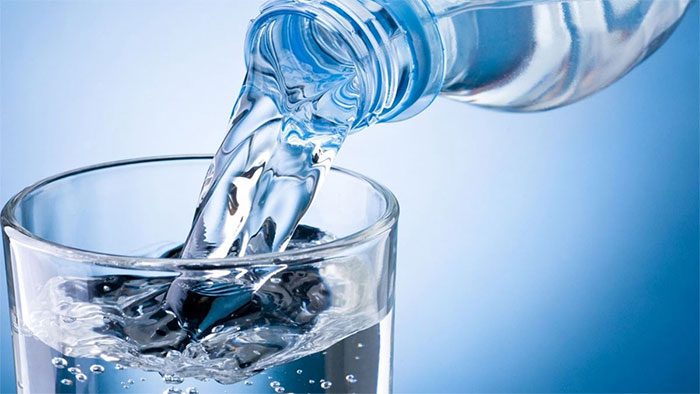The kidneys are vital organs that are also easily damaged by everyday behaviors.
Many people mistakenly believe that kidneys are only important for men. In reality, the kidneys perform numerous functions essential for life and the normal operation of the human body, regardless of age or gender. Professor Liu Bicheng from the Nephrology Department of Zhongda Hospital, affiliated with Southeast University (China), states that when discussing the primary functions of the kidneys, it is impossible to overlook blood filtration and waste removal.
Additionally, the kidneys help regulate blood volume and excrete urine. They also have endocrine functions, producing renin, erythropoietin, active vitamin D3, prostaglandins, kinins, and participating in the metabolism of vitamin D3 and glucose in certain cases.
Despite advancements in material life and medicine, kidney diseases remain challenging to fully treat. The most common kidney diseases include: kidney failure, kidney stones, glomerulonephritis, nephrotic syndrome, acute pyelonephritis, and kidney cancer. These conditions can lead to a lifetime of pain, inconvenience, and dependency on medical interventions.
Professor Liu emphasizes that the best approach is to protect early and prevent kidney diseases by avoiding the following seven harmful behaviors:
1. Drinking too little water
According to scientific studies, a normal individual should consume between 1.5 to 2 liters of water daily, excluding other types of fluids. Insufficient water intake can negatively impact the normal metabolic processes of the kidneys. Over time, this can lead to the accumulation of toxins and waste in the kidneys, increasing their metabolic burden and impairing their function.
Chronic dehydration can also result in urine that is higher in mineral content and waste. This can lead to the formation of kidney stones and result in serious kidney diseases. A simple way to determine if you are drinking enough water is to observe the color of your urine.

Lack of water is one of the leading causes of kidney damage. (Illustrative image).
2. Consuming too much salt
High salt intake leads to an excess of sodium, which is primarily excreted through the kidneys. This prolonged habit forces the kidneys to overwork and become overloaded, resulting in reduced function and disease.
Moreover, consuming too much salt causes the body to retain excess water, increasing blood circulation to the glomeruli, which compels the kidneys to work harder to filter the blood, ultimately damaging the kidneys in the long run.
3. Staying up late
Professor Liu notes that nighttime is the best time for the kidneys to rest, adjust, and repair. If you stay up late for work or entertainment, the kidneys are forced to overexert themselves, diminishing their self-repair capabilities.
No matter the reason, staying up late regularly should be avoided to protect your health (Illustrative image).
Staying up late can also disrupt the endocrine and immune systems, leading to imbalances in the internal environment of the body, making it more susceptible to infections, including those affecting the kidneys. Regular late nights can also increase the risk of hypertension, which in turn heightens the risk of kidney disease.
4. Holding in urine
When discussing damaging behaviors to the kidneys, one cannot overlook the act of holding in urine. Frequently retaining urine increases pressure on the kidneys while delaying the elimination of toxins from the body. The most immediate harm from this is bladder damage and loss of control over urination. If repeated over time, it can lead to kidney failure, kidney stones, and serious urinary disorders such as chronic nephritis or uremic poisoning.
5. Misusing medications
Misuse of medication, including taking the wrong drugs or overdosing, directly affects the kidneys by causing inflammation or destroying the anatomical structures of the kidneys. It can also indirectly cause toxicity by altering blood flow to the kidneys or creating endogenous toxins for the kidneys. The most common condition resulting from medication misuse is kidney failure, which can even lead to life-threatening acute kidney failure.
6. Neglecting to keep the lower back warm
Many people might be surprised to learn that keeping the lower back warm is crucial for kidney health. Traditional medicine suggests that frequently exposing the lower back can affect blood flow and increase susceptibility to colds, leading to kidney damage. Therefore, regardless of personal preference, one should limit exposure of this area when going out and pay extra attention to keeping the lower back warm during winter. If you experience unusual pain in the lower back, you should also be cautious about kidney health.
7. Using tea to sober up
Drinking alcohol is certainly harmful to the kidneys, but using tea to counteract its effects is not only ineffective but can also be more harmful to the kidneys, especially strong tea. According to Professor Liu, alcohol is excreted through the kidneys before it can be metabolized, and the kidneys are stimulated by large amounts of ethanol, thereby damaging kidney function.



















































